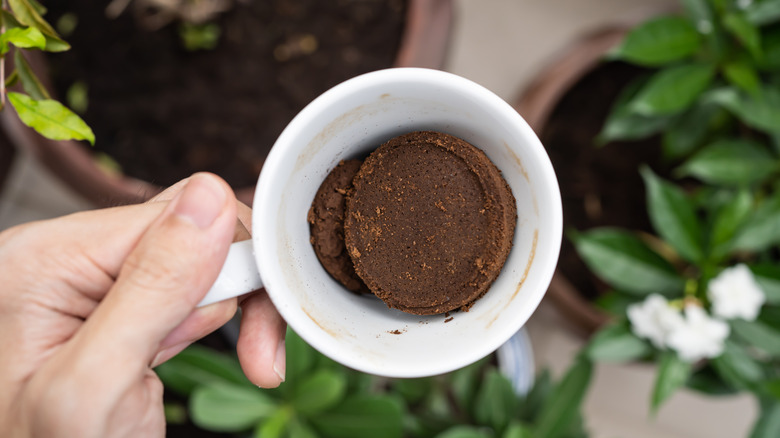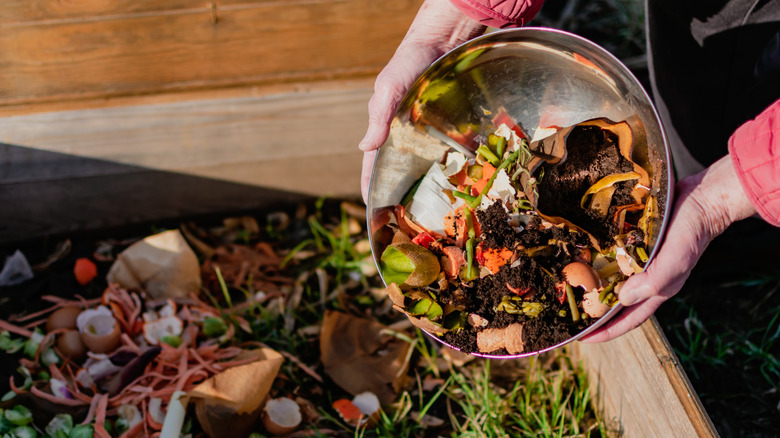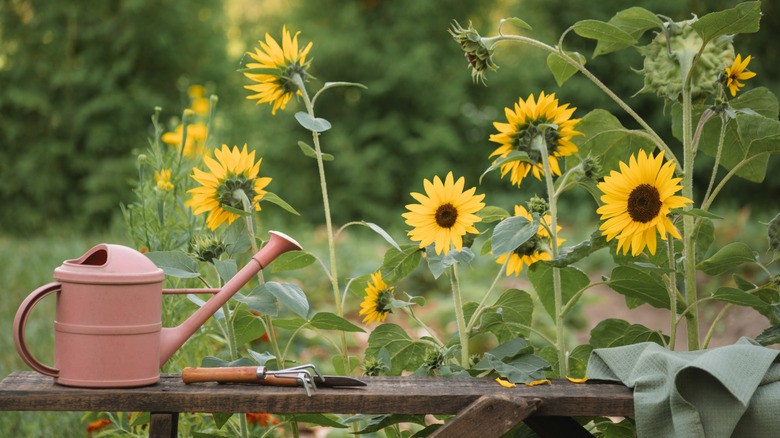Can You Safely Fertilize Sunflowers With Used Coffee Grounds, Or Is It Best To Skip?
Gardeners love coffee just like everyone else. Unlike your average coffee drinker, though, gardeners don't just toss their used grounds in the trash. Instead, they're finding genius ways to use leftover coffee grounds in their garden. Some green thumbs even utilize spent coffee grounds as a free nutrient boost for their sunflowers. But how much does this method actually help sunflowers? The evidence around using leftover coffee grounds as fertilizer is conflicting. The grounds can improve soil structure, and they contain important nutrients like nitrogen, phosphorus and potassium. All these nutrients can help sunflowers grow better.
Despite these potential benefits, coffee grounds also contain caffeine and tannins. These phytotoxic compounds can interfere with germination and suppress plants' early development. So, should you fertilize sunflowers with used coffee grounds, or is it best to skip them? You can technically use them, but do so with caution and only after composting. Research shows that if you compost coffee grounds for about six months, they become practically non-toxic to sunflowers, even at high concentrations. At that point, you'll be able to safely use them for fertilization.
Composting and safely using used coffee grounds
When composting coffee grounds, make sure you don't use too much. The best ratio is a mix of 1 part grounds with 1 part grass clippings and 3 parts leaves. Layer these materials, then turn the compost pile every week for three to six months. Blending used coffee grounds with leaves and grass increases microbial activity, which can enhance soil structure. Composting also makes the grounds non-toxic and pH neutral, as compared to the acidic pH of raw spent coffee grounds.
If composting is not possible for you, you can apply coffee grounds to sunflowers sparingly, as long as they're not new flowers that you're growing from seed. Avoid placing coffee grounds in direct contact with roots. Carefully monitor your sunflowers for signs of stress; these include wilting, stunted growth, and pale leaves. As always, it's best to do a soil test before using any fertilizer on your flowers, even if it is a DIY fertilizer made from ingredients in your pantry. Testing will give you crucial information about the health of your soil, and might even save you from the harm of over-fertilization.
Alternatives to fertilizing sunflowers with used coffee grounds
Sunflowers grow best in slightly acidic soil with a pH between 6.8 and 7.5. However, they'll be negatively affected if the acidity increases too much, which is the last thing you need if you're looking to enjoy continuous sunflower blooms all season long. If you don't want to spend six months waiting for coffee grounds to become neutral and non-toxic enough for sunflowers, there are quicker alternatives. That's where bone meal and fish emulsion can help.
Fish emulsion is a fast-acting organic fertilizer that is rich in nitrogen. It helps improve overall plant growth and increases microbial activity in the soil, both of which can help your sunflowers stay healthy. Bone meal, on the other hand, is rich in phosphorus and calcium, two essential nutrients for root and flower growth. When applied correctly, both fish emulsion and bone meal can help sunflowers thrive without the risks associated with spent coffee grounds.


